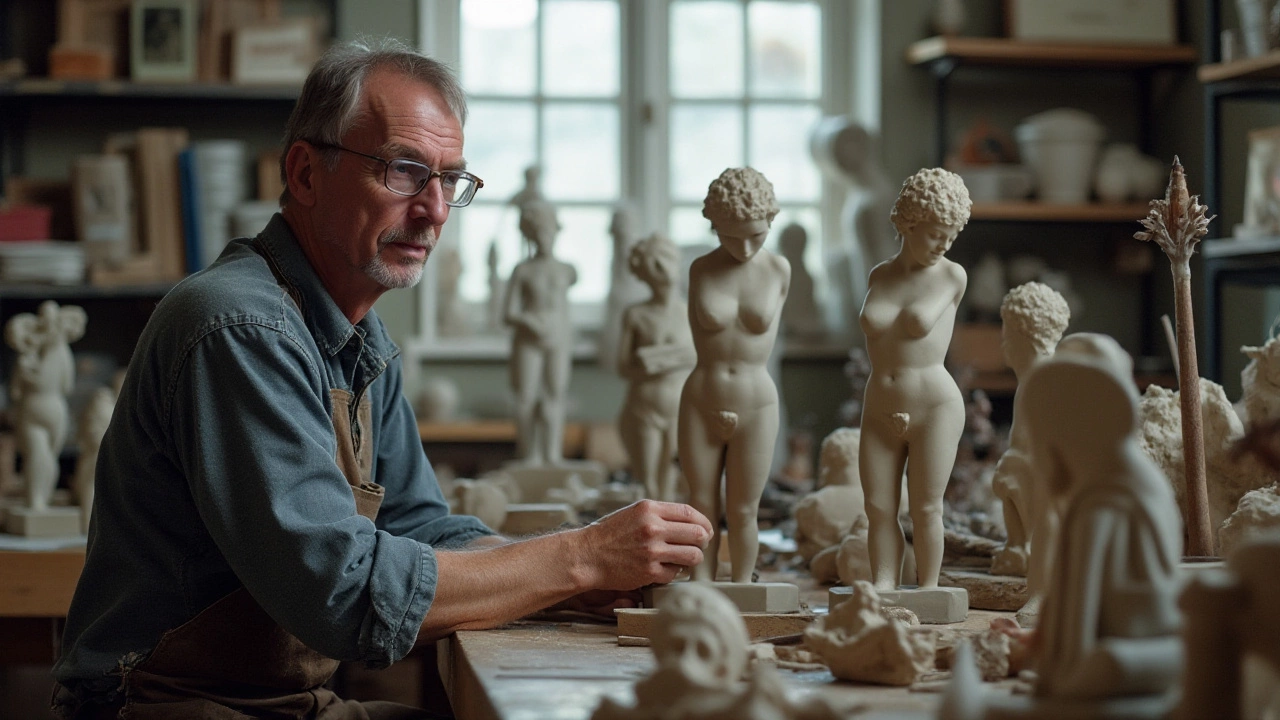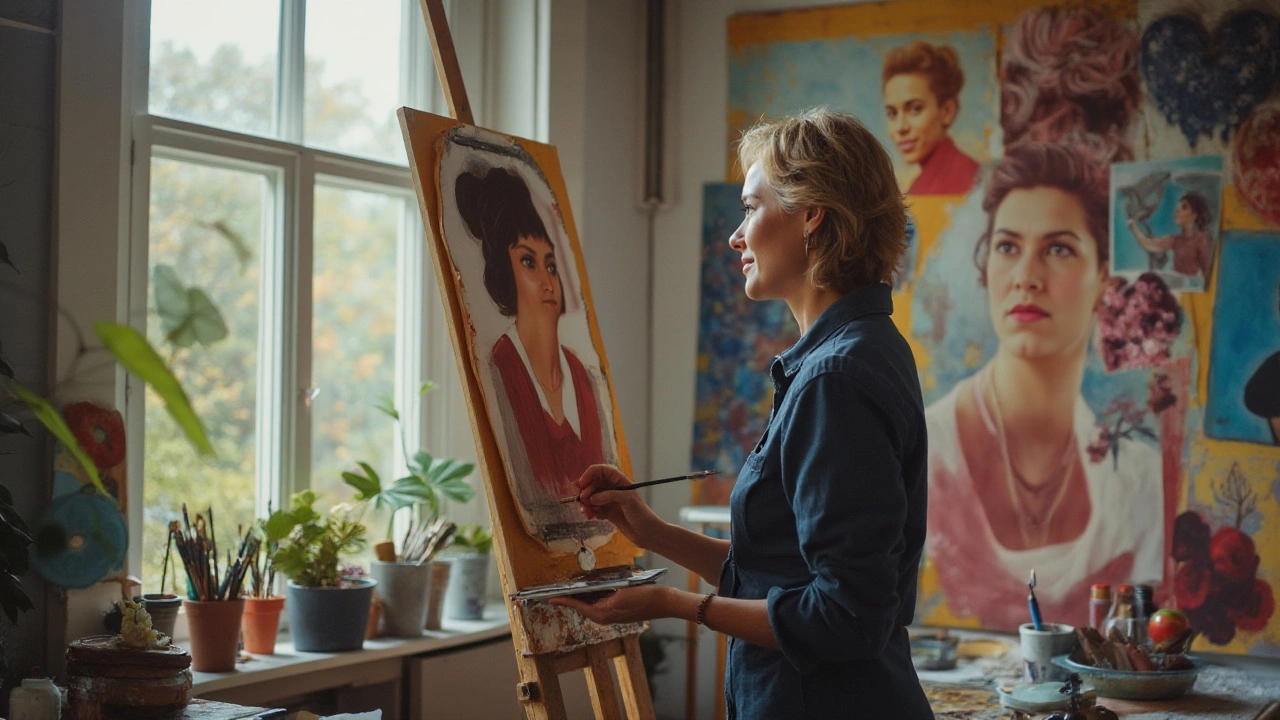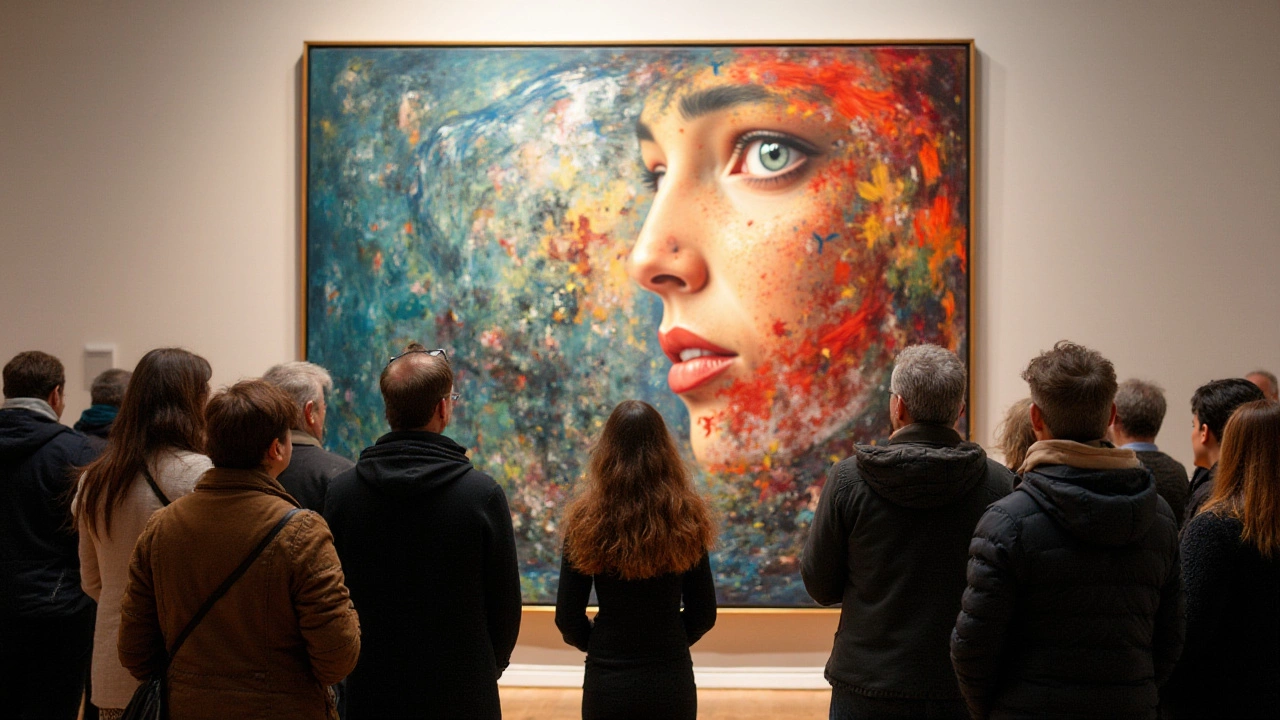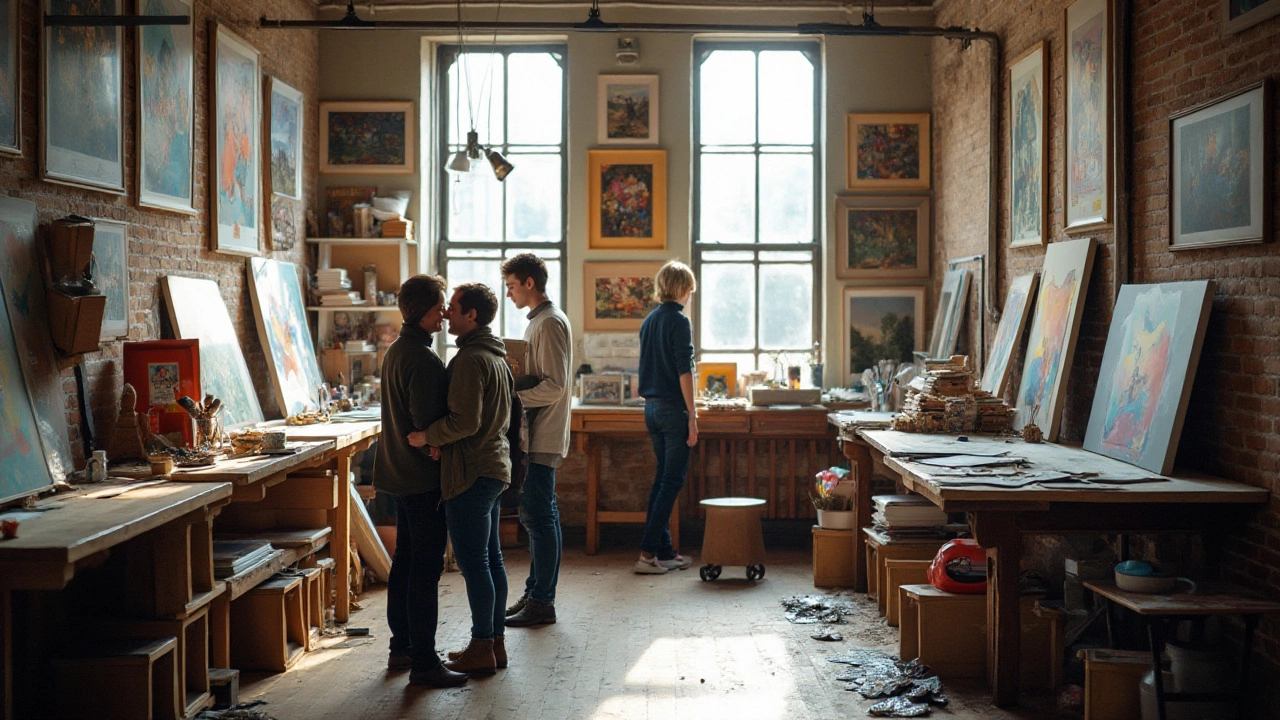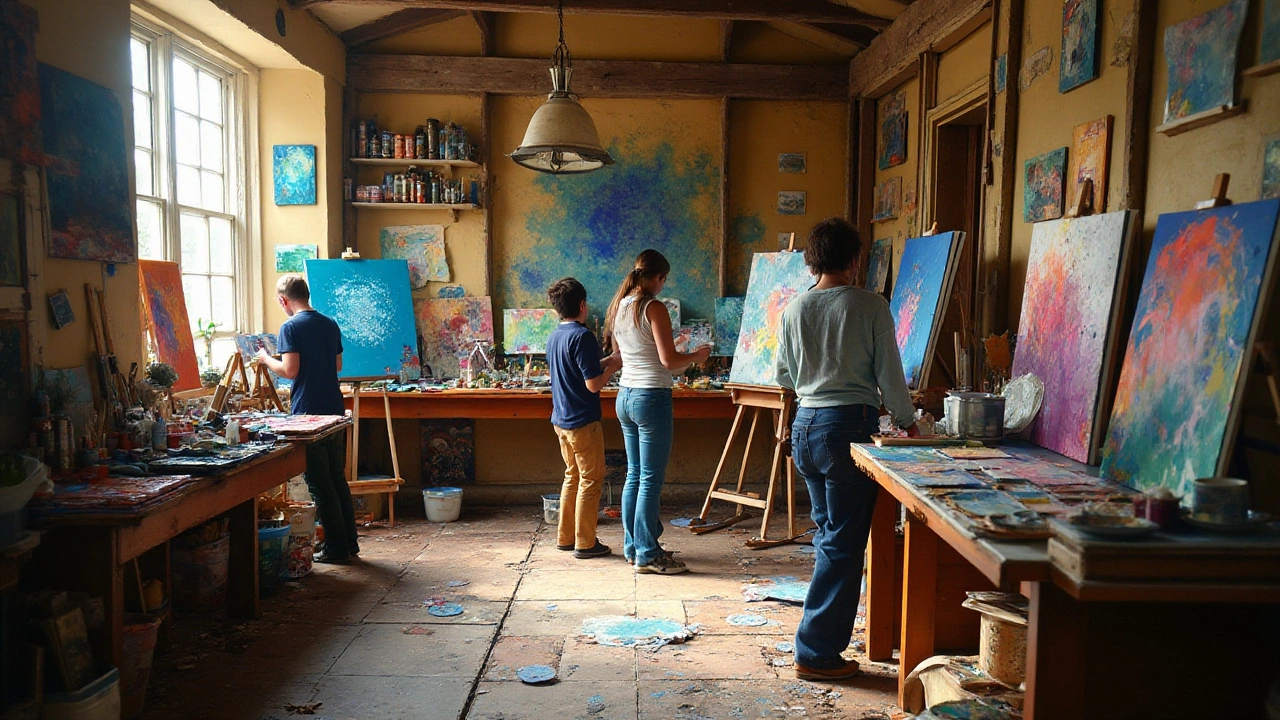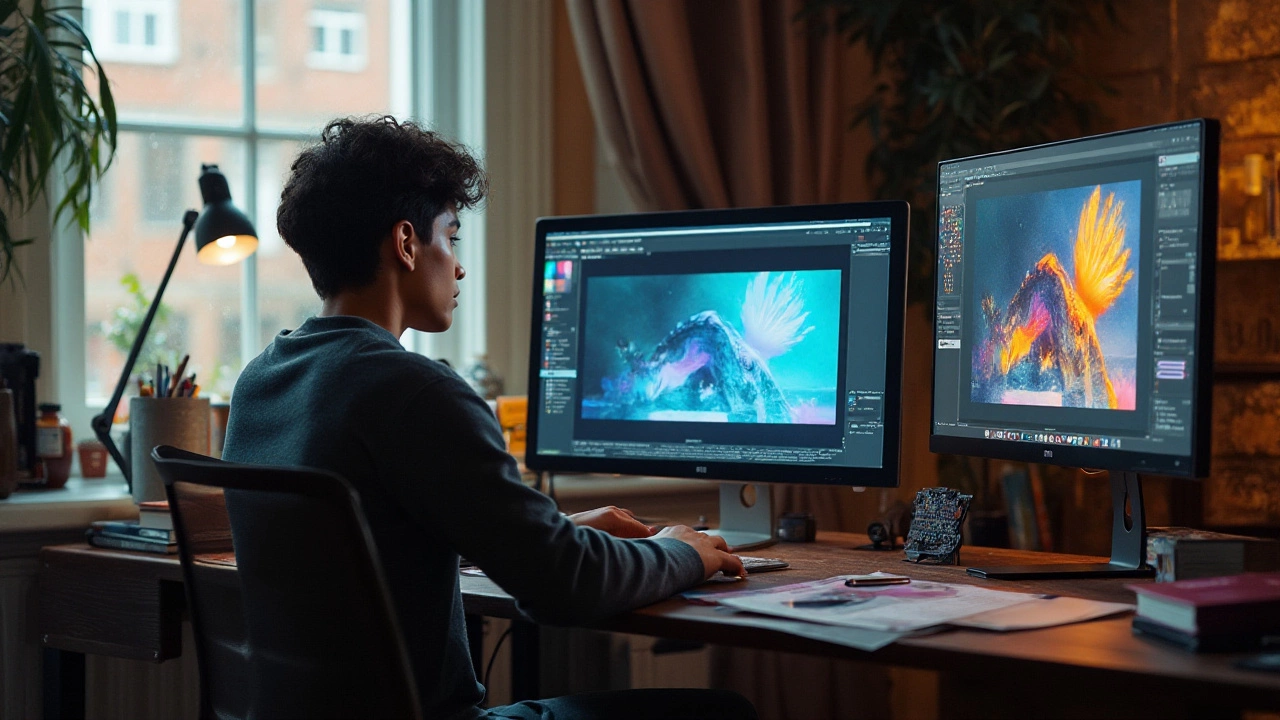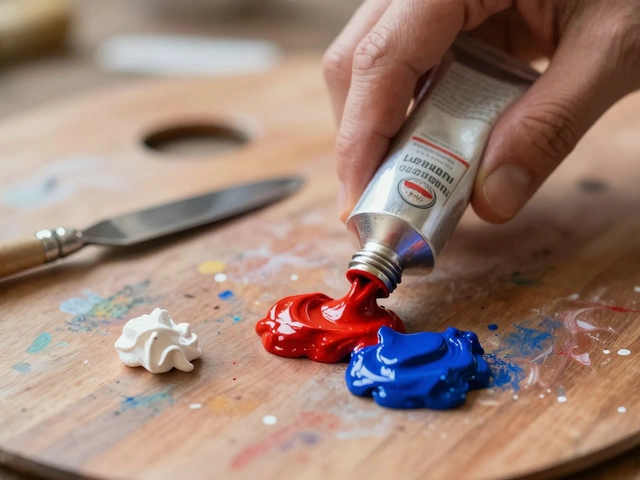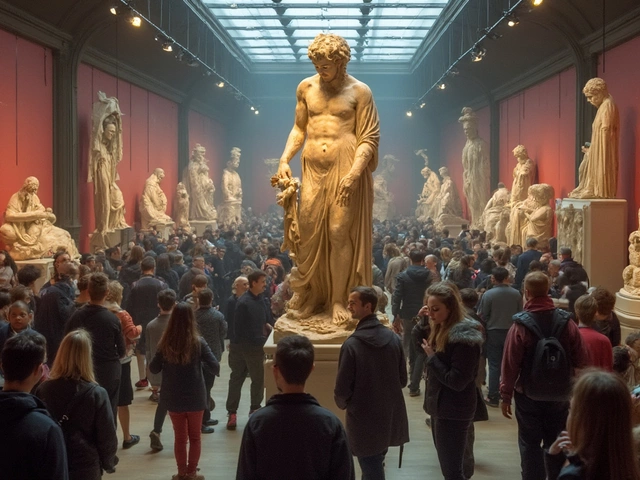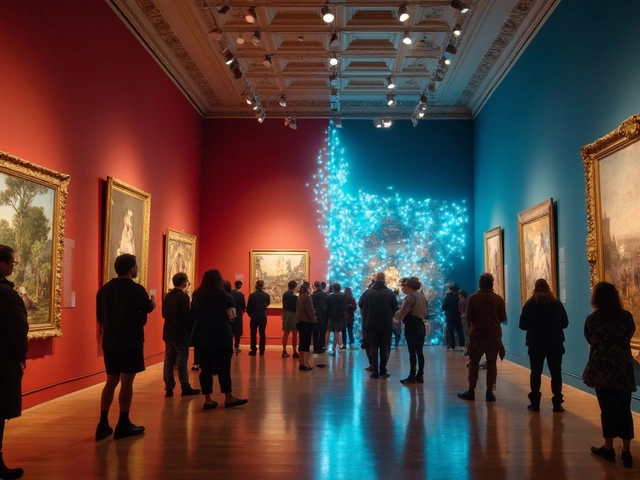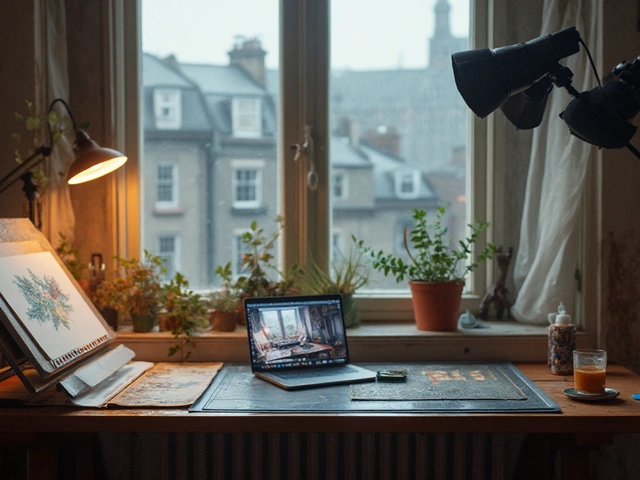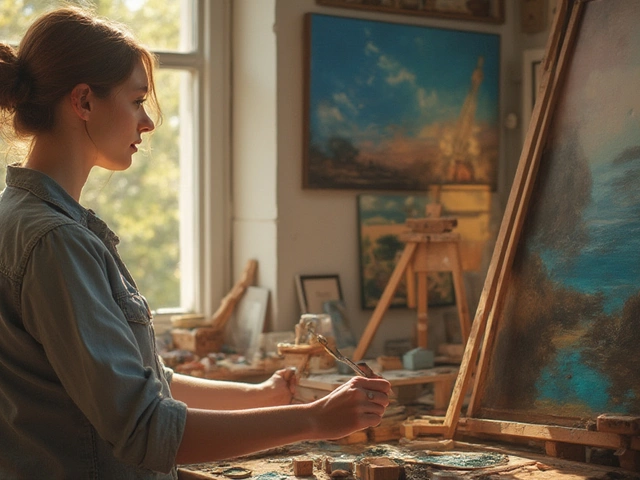November 2024 Art Articles – From Sculpture to Digital Art
November was a busy month at Artistry Education Hub. We covered everything from the age‑old debate about sculpture to practical tips for beginner digital artists. If you love hands‑on making, painting, or figuring out how to sell your work, there’s something here for you.
Sculpture and Its Many Faces
Two posts dug into the world of three‑dimensional art. The first asked whether sculpture belongs more to art or to design. It walked through history, material choices, and how intention shapes perception. The second broke down sculpting versus carving, pointing out that sculpting builds up material while carving cuts it away. Both pieces gave clear examples – think clay models versus wooden reliefs – so you can see the methods in action.
Readers left with a simple checklist: decide if you’re adding shape or removing it, choose a material that matches your concept, and consider how the finished piece will be used or displayed. That approach helps you stay focused whether you’re in a studio or a classroom.
Painting, Prints, and Digital Beginnings
Portrait painting got a practical guide. It starts with studying anatomy, picking the right medium, and mastering light. The article suggests a quick exercise: sketch a face with just three lines to capture proportion before adding detail. That trick speeds up learning and builds confidence.
Abstract art also featured twice. One post explained why modern audiences love the freedom of abstract forms – they let each viewer add personal meaning. The other decoded how artists send messages without recognizable objects, urging you to look at color, line, and texture as a language.
If you’re thinking about turning art into income, the guide on selling prints laid out the basics. Identify a demand, price your prints to cover costs and profit, and keep quality high by using reliable printing services. A short case study showed an artist who doubled sales by offering limited‑edition runs.
Digital newcomers weren’t left out. The beginner’s guide answered the big question: “Is digital art easy to start?” It broke the learning curve into three steps – pick a free tool, follow a short tutorial, and practice a daily 10‑minute sketch. The emphasis was on patience and regular practice, not on buying expensive gear.
We also slipped in a cultural note about the Who Hits Back tour, reminding art fans that music events often spark visual inspiration. Attending a live show can spark ideas for stage design, poster art, or even rhythm‑based painting.
Overall, November’s posts gave you concrete actions: decide your sculpting method, sketch a portrait with basic anatomy, experiment with abstract color combos, set up a print‑selling workflow, and try a free digital drawing app. Each article linked back to our larger mission – helping you turn creative curiosity into real skill.
Ready to try something new? Pick one of the tips, set a small goal for the week, and watch your art grow. We’ll keep adding fresh lessons, so check back often for more hands‑on advice.
Exploring Sculpture: Art or Design?
The age-old debate about whether sculpture is an art form or a design process continues to intrigue minds across the creative spectrum. This discussion explores the rich history, techniques, and philosophical aspects that define sculpture, examining its dual nature. Through diverse materials and concepts, sculpture bridges the line between artistic expression and functional design. The exploration highlights how context and intention shape the perception of sculpture, offering insights into its evolving landscape in modern times.
Continue ReadingSculpting vs Carving: Exploring the Art of Shaping Materials
Sculpting and carving, while often used interchangeably, employ distinct techniques and philosophies within the realm of art. Sculpting generally refers to the creation of three-dimensional forms by assembling or modeling, typically using materials like clay or bronze. Carving involves removing material from a solid block, often wood or stone, to reveal a form. Each method carries its own history, challenges, and artistic expression, making them unique yet complementary forms of creative art. Understanding these differences enriches the appreciation for each process and its place in the artistic landscape.
Continue ReadingStarting Your Portrait Painting Journey: Tips and Techniques
Embarking on the journey of portrait painting requires a thoughtful approach to capturing the essence of a subject. This article provides essential tips and insights on where to begin in the portrait painting process. Explore the importance of studying anatomy, choosing the right medium, and understanding lighting and composition. Discover techniques to convey emotion and personality in your artwork. Find inspiration and practical advice for creating captivating portraits.
Continue ReadingUnderstanding the Appeal of Abstract Art in Modern Society
Abstract art, with its emphasis on spontaneity and interpretation, captivates many by allowing diverse expressions and emotions. This form of art offers viewers the freedom to project personal meanings onto diverse patterns and colors. As society evolves, people tend to appreciate the unique, unbounded nature of abstract art more than the rigid structures of realism. The admiration for abstract art also stems from its ability to provoke thought, reflect societal changes, and encourage creativity. This article explores the reasons behind the growing preference for abstract art among both artists and audiences today.
Continue ReadingExploring the Value of Selling Art Prints for Artists
Selling art prints can be a lucrative endeavor for artists seeking to broaden their audience and increase income streams. Art prints give artists an opportunity to reach a wider market by offering affordable alternatives to original pieces. Understanding market demand, pricing strategies, and mastering print quality are key factors in successfully selling art prints. This article delves into the benefits, challenges, and tips for artists who are considering whether selling art prints is worth their time and effort.
Continue ReadingWho Hits Back Tour Dates: Upcoming Concerts and Locations
The iconic band Who is back on the road with their eagerly awaited 'Hits Back' tour. This article delves into the concert dates, exciting locations, and what fans can expect. Whether you're seeking tips on ticket purchasing or want a sneak peek at their setlist, this guide has you covered. It's a must-read for those planning to join the band's memorable performances.
Continue ReadingDecoding the Message Behind Abstract Art
Abstract art, often seen as perplexing or elusive, communicates through a kaleidoscope of color, form, and emotion. This art form offers a unique way of expressing ideas and emotions, removing recognizable forms to highlight the artist's intent and personal experience. Understanding abstract art requires an open mind, allowing viewers to interpret the artwork through personal association and intuitive response. This exploration into abstract art delves into its purpose, history, and the methods artists use to convey their messages.
Continue ReadingBeginner's Guide to Digital Art: Is It Easy to Start?
Digital art offers beginners an accessible entry into creative expression. With a multitude of tools and tutorials available, it is easier than ever to start creating art digitally. The learning curve can be influenced by one's willingness to explore various software and techniques. Success in digital art often comes with patience and practice. Discover the essentials for starting your journey in digital art today.
Continue ReadingAbout Us
Artistry Education Hub offers online art classes for all levels in painting, drawing, and art history. Learn from experienced instructors and transform your creative passion into expertise.
Continue ReadingTerms of Service
Terms of Service for Artistry Education Hub (art-classes.co.uk). Access art education content legally and understand your rights and responsibilities under UK law.
Continue ReadingPrivacy Policy
Privacy Policy for Artistry Education Hub (art-classes.co.uk). Learn how we use cookies and analytics to enhance your experience while respecting your UK GDPR rights.
Continue ReadingUK GDPR
Understand your UK GDPR rights at Artistry Education Hub. Learn how we protect your data, what we process, and how to access, correct, or delete your information.
Continue Reading
